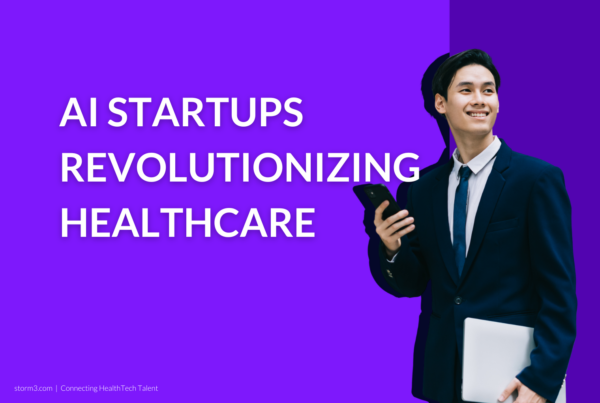Salary Guide / USA
USA
Salary Guide
Using data from over 20,000 candidates in the Storm3 database we have put together a comprehensive picture of HealthTech salary and remuneration trends in The USA. This guide will provide key insight into each HealthTech niche, discussing the local job landscape across the region.

This guide includes:
- East Coast
- West Coast
- Central
- Remote
This guide includes a full-scale look at salaries across the HealthTech space. We use a mix of data we have collated from over 20,000 candidates and industry insights from our clients, to populate a report that will have your back, no matter your company size, location or seniority level!
HealthTech Hiring Trends in The USA
The HealthTech sector continues to evolve at an unprecedented pace. Advancements in technology are not only shaping the way healthcare providers operate but also the skills and expertise they need from their workforce.
In the USA, there’s a particular focus on HealthTech hubs including, San Francisco, New York, Chicago, Los Angeles, and Boston. Other locations including Atlanta, Austin, Seattle, San Diego, Milwaukee, and Kansas City are also of interest. And unsurprisingly, IT roles continue to be the most in-demand when it comes to HealthTech.
We explore the top trends in the US HealthTech market in these hubs and beyond, plus what they mean for both talent acquisition and hiring.
Artificial Intelligence (AI) Remains Key
As AI continues to be a key innovation in all kinds of tech, HealthTech is no exception and new applications are emerging rapidly. From diagnostic tools to predictive analytics, AI is quickly and continuously transforming the face of healthcare. But what are the implications for hiring and talent?
Tech-proficient professionals are in demand: The surge in AI applications (and particularly generative AI) calls for professionals who can develop, implement, and manage AI technologies. Because of the high demand, IT professionals working in HealthTech hubs, and in companies with more than 100 employees, can earn more than $150,000. And Chief Technology Officers’ salaries in large companies can reach over $250,000.
Responsible tech implementation is important: There’s a growing need for individuals with more than just technological know-how. Companies increasingly want talent who understand the ethical implications of AI in healthcare, ensuring these technologies are used responsibly and effectively. Honing these kinds of skills will help candidates to stand out.
Cloud Computing is increasingly important
Cloud computing is an increasingly vital asset in the healthcare industry. Not only does it offer secure, scalable, and accessible solutions for storing massive amounts of patient data, but it also enables remote access to medical services. But what are the implications for hiring and talent?
Cloud integration experts are the new must-have: HealthTech hirers are increasingly seeking experts who can seamlessly integrate cloud-based solutions into their existing systems. These professionals need to understand the intricacies of both hardware and software components while ensuring the smooth transition of data and processes to the cloud. Their expertise can help healthcare providers to enhance operational efficiency, improve patient services, and facilitate remote access to medical records. With hardware specialist salaries in US HealthTech hubs averaging $160,000, there’s potential for those with combined hardware and software expertise to earn even more.
Cybersecurity skills are of rising importance: With the surge in cloud adoption comes the critical need to protect sensitive patient information. Cybersecurity skills have become essential in HealthTech. Professionals with these skills are tasked with implementing effective security measures, regularly updating systems, and responding to potential threats promptly. Their role is instrumental in maintaining patient trust and complying with stringent healthcare regulations. Again, another sought after specialist area in which candidates can excel.
Mental Health Technology On The Rise
Mental health technology is experiencing a surge with digital platforms now providing an array of therapy and counselling services. These platforms not only increase accessibility but also offer individuals the comfort and convenience of receiving support from their own homes. This trend, however, presents unique challenges and opportunities in terms of talent acquisition and development. But what are the implications for hiring and talent?
User-friendly mental health platforms: The proliferation of mental health technology calls for professionals who excel in designing user-friendly digital platforms. These platforms need to be intuitive and maintain the sensitivity that mental health services require. The professionals should have a deep understanding of user experience design principles and should be able to balance technical requirements with the unique needs of mental health service users. Their role is pivotal in ensuring that these platforms are not just functional but also provide a safe and supportive environment for users.
Tech-savvy professionals are in high demand: Alongside the rise in mental health tech, there’s an increasing demand for mental health professionals who can adapt their traditional practices to digital platforms. These professionals need to be comfortable with technology but more importantly, they need to be adept at building rapport and delivering effective treatment in a virtual setting. Their ability to navigate this new mode of service delivery could revolutionise the mental health landscape, making mental health services more accessible and convenient for patients across the globe.
Telemedicine Transforming Healthcare Delivery
Telemedicine continues to gain traction in the US, evolving from a novel idea into an integral part of healthcare delivery. Virtual consultations have become the new norm – particularly post-pandemic – offering convenience, accessibility, and a safer alternative amidst public health crises. It’s a shift that hugely impacts talent acquisition and development within the healthcare sector. But what are the implications for hiring and talent?
Digital doctors are everywhere: The result? There’s an increased need for tech-savvy healthcare professionals. These specialists must be adept at delivering services remotely, and using digital platforms effectively while maintaining the same level of care and communication as in-person consultations. Their role is crucial in navigating this new landscape, bridging the gap between technology and traditional healthcare practices.
IT specialists are crucial: Alongside the demand for digitally proficient healthcare providers, there’s also a pressing need for IT specialists in the realm of telemedicine. These professionals ensure the smooth operation of telemedicine platforms, tackling technical issues, enhancing system capabilities, and ensuring data security. Their expertise is vital in providing a seamless virtual consultation experience and in maintaining patient trust in these digital platforms.
The Revolution of 3D Printing
3D printing is rapidly transforming the US HealthTech sector in the US. This innovative process, also known as additive manufacturing, has been adopted by over 90% of the top 50 medical device companies for creating precise prototypes. As it continues to be increasingly deployed in both clinical and research-based healthcare activities, this technology is playing a pivotal role in revolutionising healthcare delivery. But what are the implications for hiring and talent?
In-demand expertise create a competitive landscape: With the expanding role of 3D printing in healthcare, there’s a rising demand for IT professionals adept at managing and optimising these technologies. From ensuring the smooth operation of 3D printers to enhancing system capabilities and maintaining data security, their expertise forms the backbone of this technological revolution in healthcare. Coupled with this, leading medical companies, including Philips, Apple, Roche, and Alphabet, have been integrating 3D printing into their operations, further highlighting its importance in the future of healthcare. This growing demand for 3D printing specialists presses employers to offer increasingly attractive packages and benefits.
The HealthTech sector in the US is experiencing a dynamic shift, and tech expertise are at its heart. These industry trends are not only revolutionising healthcare delivery but also significantly impacting talent acquisition and hiring strategies within the industry.
To navigate this rapidly evolving landscape, it’s crucial for HealthTech organisations and specialists to stay ahead of these trends and understand their implications for talent and hiring. By doing so, they can secure the skilled professionals needed to drive innovation and deliver exceptional healthcare services.

Download Guide
Fill in your details and you’ll immediately receive a copy of the report to download.
Frequently asked questions
Where do you get the data from?
We use a mix of data from over 20,000 candidates in the Storm3 database, as well as industry insights we gather from conversations with industry leaders, filling roles for our clients and nearly 5 years of experience.
Does this guide include contract/hourly rates?
Our guides exclusively cover full-time salaried employees based on region and role.






